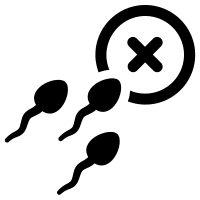Have migraines disrupted your daily lives? Here’s a guide to a holistic approach to treatment and prevention of migraines. While a layman may think of migraines as just regular headaches, those who experience them daily and endure the pain, know that migraines are much more than that.
This neurological disorder can have an extremely overpowering impact on people’s everyday lives turning even simple tasks into overwhelming challenges. Multiple reports suggest that migraine pain affects more than 10% of the global population. Migraine headaches feel like having a nail hammered into your skull while you are trying to get through your morning routine.
Although there is no cure for migraines, it is possible to manage their symptoms by taking a holistic approach that includes homeopathic remedies, making lifestyle adjustments, and employing preventive strategies. By maintaining a schedule to keep hormonal imbalances in check, individuals can reduce the frequency and severity of migraine headaches. This way they can find relief and minimize the impact this condition has on their day-to-day lives.
In this blog, we will overview this holistic approach to the Homeopathic treatment and prevention of migraines in contrast to conventional treatments of this disorder.
Understanding Migraines
Migraines are a type of headache in which individuals experience recurring attacks of intense throbbing and pulsating pain on one side or half of their head. If left untreated, these migraine episodes can persist for up to 72 hours. The underlying cause is the activation of nerve fibers within the blood vessels of the brain, which are located beneath its layers.
Symptoms Involved with Migraine
Individuals who suffer from migraines often have heightened sensitivity to light, noise, and sometimes certain smells. Additionally, feelings of nausea and vomiting are commonly associated with migraines as well. These headaches can be extremely debilitating, impacting both the physical as well as mental well-being of the patient. Approaching migraine treatment holistically involves addressing different factors in an individual’s life that contribute to migraines and tackling them individually.
Types of Migraines: There are several types of migraines, each with its unique characteristics. The most common types of migraines suffered by patients are “migraine with aura” and “migraine without aura”. The aura involves visual disturbances and other sensory changes that occur before the headache phase. In reality, aura constitutes a warning of a migraine attack in the form of flashes of light and blind spots. About 30% of the total number of patients with migraines experience aura.
Triggers: Migraine triggers are internal and external stimuli that activate or give rise to a migraine attack. Each individual has a different and unique set of triggers that need to be identified.
These triggers can be a variety of factors including stress, certain foods, hormonal changes, excessive physical activity, bright lights or sunlight, sudden movements, inadequate sleep, environmental stimuli, etc. Identifying triggers is of primary importance for effective management of this disorder.
Conventional Treatment Options
Pain Relievers
Over-the-counter pain relievers are often used to alleviate migraine pain. However, they only provide temporary relief and do not address the root cause of this disorder. Hence, the frequency of headaches is not controlled and the patient has to be dependent on pain-relieving medications which have harmful long-term effects on the liver.
Anti-inflammatory medicines
Triptans are prescription medications that can help constrict blood vessels and reduce inflammation in the brain. They are commonly used during an active migraine attack. But similar to pain-relievers, they don’t address the crux of the problem and only cure the symptom of the disorder instead of the disorder itself.
Limitations of Conventional Treatment
While conventional treatments provide momentary and quick relief for the excruciating pain of migraines, they have some blatant limitations. Firstly, such hard pain-relieving drugs can cause side effects, and overuse can lead to medication-overuse headaches. Secondly, medication dependence for an issue like migraine can lead to a degrading condition of other organs such as the liver and kidney.
These limitations of conventional treatments have led to an interest in holistic alternatives like homeopathy where the root cause of migraine is addressed instead of only temporarily fixing the symptoms.
The Holistic Approach
What is Homeopathy?
Homeopathy is a holistic healing system based on the principle of “like cures like.” It is a branch of medical science that is built on the belief that the body is capable of curing itself with the right inhibitors in tiny amounts of natural substances such as plants and minerals. It is believed that these substances stimulate the healing process and allow the body to fix its issues without the involvement of foreign drugs.
Homeopathic Remedies for Migraines
Since homeopathic remedies are developed individually and are chosen based on the individual’s unique symptoms, emotional and hormonal state, and overall health, they can prove to be particularly beneficial in migraines. A specialized prescription is developed for every patient which not only targets the symptom, i.e. pain but also cures the root cause of the problem, the hypersensitive nerve fibers in the brain.
Treating Migraines Holistically
Individualized Treatment
Homeopathy considers the whole person, not just the symptoms. Individualized treatments that are most beneficial for the patient are developed as per the needs of the patient and their unique conditions.
Addressing Root Causes
Holistic treatments focus on identifying and addressing triggers, imbalances, and lifestyle factors contributing to migraines. This aims to address the underlying causes of migraines and not just address the headache pain associated with migraines.
Prevention through a Holistic Lifestyle
Diet and Nutrition
Certain foods like aged cheese and processed meats can trigger migraines due to a chemical called Tyramine that causes constriction and dilation in blood vessels. A balanced diet rich in whole foods and hydration can help prevent them.
Stress Management
Stress is a common trigger of migraine pains. Techniques like deep breathing, progressive muscle relaxation, and biofeedback can manage stress effectively and reduce the frequency of attacks.
Adequate Sleep
Ensuring a minimum of eight hours of sleep by maintaining a consistent sleep schedule ensures healthy melatonin buildup and creating a calming bedtime routine can greatly reduce migraine frequency.
Regular Exercise
Engaging in regular physical activity promotes overall well-being, activates deeper sleep, and can reduce the frequency and intensity of migraines as well.
Combining Conventional and Holistic Approaches
Integrating conventional treatments with holistic approaches can provide comprehensive relief and long-term benefits.
Conclusion
In conclusion, migraines are a disorder that harms the quality of life of hundreds of thousands of people around the world. On the one hand, conventional medicine and treatments that have sought to control and cure this disorder have proven relatively ineffective, a more holistic approach to curing this problem is to be sought.
Homeopathy, a branch of medical science that focuses on self-healing, is a brilliant alternative to conventional treatments and offers a path that addresses the root causes of migraines by simply alleviating their symptoms.














